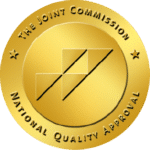Depression can be an overwhelming and debilitating condition, affecting millions of people worldwide. When traditional treatments like therapy and medication fail to provide relief, many individuals seek alternative solutions. One such option gaining popularity is magnetic depression treatment, also known as transcranial magnetic stimulation (TMS). In this guide, we’ll explore the intricacies of TMS, its potential benefits, drawbacks, and whether it could be the right choice for you.
Understanding Magnetic Depression Treatment
Transcranial magnetic stimulation (TMS) involves the use of magnetic fields to stimulate specific areas of the brain associated with mood regulation. Unlike electroconvulsive therapy (ECT), which induces seizures, TMS is non-invasive and does not require sedation. During a TMS session, an electromagnetic coil is placed against the scalp, delivering focused pulses to targeted brain regions.
Pros of Magnetic Depression Treatment
- Non-Invasive Nature: TMS is performed in an outpatient setting, and patients remain awake and alert throughout the procedure. Unlike ECT, which requires anesthesia and can cause memory loss, TMS is considered safe and well-tolerated.
- Minimal Side Effects: Common side effects of TMS are generally mild and transient, including headache, scalp discomfort, and tingling sensations. Unlike antidepressant medications, which can lead to weight gain, sexual dysfunction, and cognitive impairment, TMS has minimal systemic effects.
- Targeted Treatment: One of the key advantages of TMS is its ability to target specific areas of the brain implicated in depression, such as the dorsolateral prefrontal cortex. By precisely modulating neural activity in these regions, TMS offers a more focused approach to treatment compared to medications, which affect the entire brain.
- High Success Rates: Numerous clinical trials have demonstrated the efficacy of TMS in reducing depressive symptoms, particularly in individuals who have not responded to other treatments. Many patients experience significant improvement in mood, energy levels, and overall quality of life following a course of TMS therapy.
Cons of Magnetic Depression Treatment
- Time and Commitment: TMS typically requires multiple sessions spread out over several weeks, with each session lasting 20 to 60 minutes. This time commitment can be challenging for individuals with busy schedules or limited access to treatment centers.
- Cost Considerations: While TMS is covered by most insurance plans for the treatment of major depressive disorder, coverage varies, and out-of-pocket costs can be substantial for uninsured individuals. Additionally, transportation expenses and missed workdays may further contribute to the overall cost of treatment.
- Limited Availability: Although TMS is becoming more widely available, particularly in urban areas, access to treatment may still be limited in some regions. Individuals living in rural or remote areas may face challenges in finding a nearby TMS provider, necessitating travel to larger cities for treatment.
- Not Suitable for Everyone: While TMS is generally considered safe, it may not be appropriate for individuals with certain medical conditions or those who have metal implants in or around the head. Additionally, individuals with a history of seizures or bipolar disorder may require careful monitoring during TMS treatment.
Is Magnetic Depression Treatment Right for You?
The decision to pursue magnetic depression treatment should be made in collaboration with a qualified healthcare professional. Factors such as the severity of your depression, your treatment history, and your individual preferences should all be taken into consideration.
If you’ve tried other treatments without success or are hesitant to try antidepressant medications due to side effects, TMS may offer a promising alternative. However, it’s essential to weigh the potential benefits and drawbacks of TMS carefully and to discuss any concerns with your healthcare provider.
Conclusion:
Magnetic depression treatment represents a significant advancement in the field of mental health, offering a safe and effective alternative for individuals struggling with depression. While it may not be suitable for everyone, TMS has the potential to provide meaningful relief for those who have not responded to other treatments. By considering the pros and cons of TMS and consulting with a healthcare professional, you can make an informed decision about whether it’s the right option for you on your journey to recovery.









